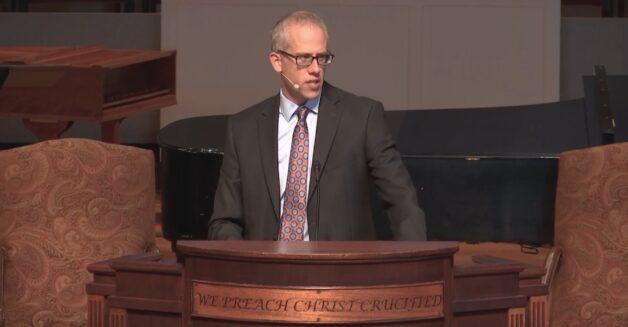One of the reasons we struggle with imperatives, is because they are not always handled wisely. For example, the Bible tells us plainly that we must pray (Col. 4:2; 1 Thess. 5:17). Prayer is a requirement for the Christian and preachers are right to insist upon the practice. And yet, there is a way to make this command sink and a way to make it swim. Or perhaps I should say, there’s a way this command can make us sink or swim.
Consider two different exhortations to prayer. The first is from William Law (1686-1781) in A Serious Call to a Devout and Holy Life:
I take it for granted, that ever Christian, that is in health, is up early in the morning; for it is much more reasonable to suppose a person up early, because he is a Christian, than because he is a labourer, or a tradesman, or a servant, or has business that wants him. . . .
Let this therefore teach us to conceive how odious we must appear in the sight of Heaven, if we are in bed, shut up in sleep and darkness, when we should be praising God; and are such slaves to drowsiness, as to neglect our devotions for it.
For if he is to be blamed as a slothful drone, that rather chooses the lazy indulgence of sleep, than to perform his proper share of worldly business; how much more is he to be reproached, that would rather lie folded up in bed, than be raising up his heart to God in acts of praise and adoration! . . .
Sleep is such a dull, stupid state of existence, that even amongst mere animals, we despise them most which are most drowsy.
He, therefore, that chooses to enlarge the slothful indulgence of sleep, rather than be early at his devotions to God, chooses the dullest refreshment of the body; before the highest, noblest employment of the soul; he chooses that state which is a reproach to mere animals, rather than exercise which is the glory of Angels.
That’s one way to entice the believer to pray. Here’s another, this time from the Puritan Thomas Goodwin (1600-1680):
Mutual communion is the soul all true friendship; and a familiar converse with a friend hath the greatest sweetness in it . . . (so) besides the common tribute of daily worship you owe to (God), take occasion to come into his presence on purpose to have communion with him. This is truly friendly, for friendship is most maintained and kept up by visits; and these, the more free and less occasioned by urgent business, or solemnity . . . the more friendly they are . . . We use to check our friends with this upbraiding. “You still (always) come when you have some business, but when will you come to see me?” . . . When thou comest into his presence, be telling him still how well thou lovest him; labour to abound in expressions of that kind, that which . . . there is nothing more taking with the heart of any friend.
Which approach will serve you better over the long haul? I think we’d all opt for the second. The problem with the first quote is twofold: One, Law (no pun intended) insists with all his might on something that cannot be proven from Scripture (i.e., that we must get up early to pray). Two, he does not connect the biblical command to pray to the other biblical realities that would make us eager to pray. William Law makes me deathly afraid of the snooze bar. Thomas Goodwin makes me excited about prayer. Who wouldn’t want the happiness of drawing near to God? Who doesn’t delight to tell secrets and converse with a friend? Prayer will always be hard and will always take discipline, but when I see it as a means to communion with God, it feels more like a “get to” than a “have to.” I still need to hear the imperatives about prayer–and even feel convicted when I disobey them–but the indicatives of the gospel make me happy to hear the commands and eager to obey.



